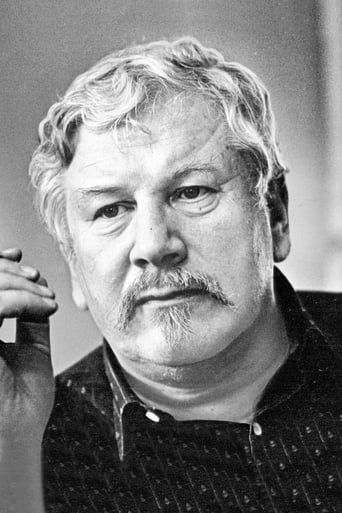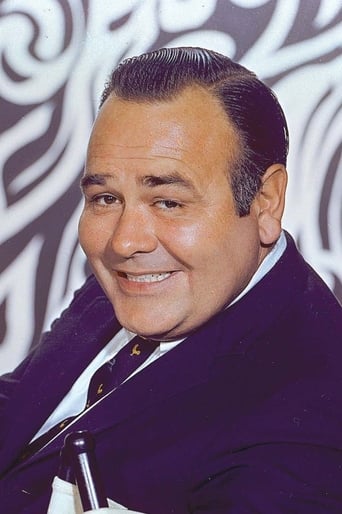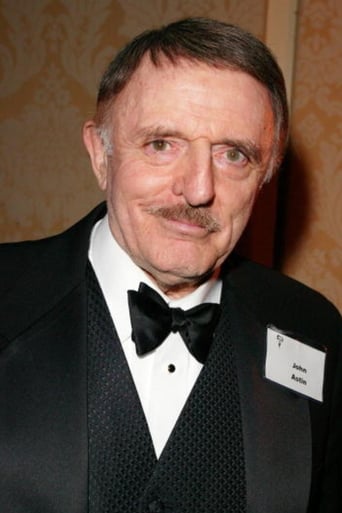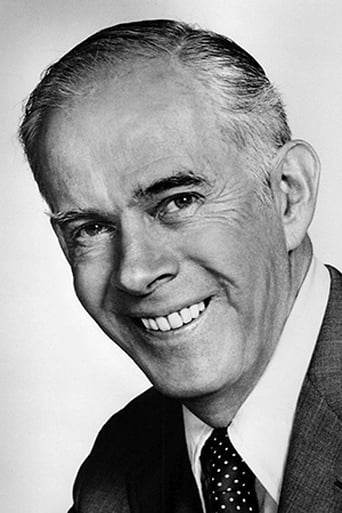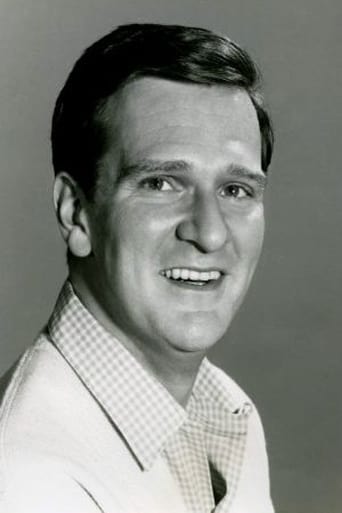Ella-May O'Brien
Each character in this movie — down to the smallest one — is an individual rather than a type, prone to spontaneous changes of mood and sometimes amusing outbursts of pettiness or ill humor.
moonspinner55
James Lehrer's novel becomes sporadically funny modern-day military-takeover satire featuring a band of Mexican soldiers and their blustery Brigadier General who enter the States by way of Texas and assume control of the Alamo. For the first three quarters of an hour, a sprightly, silly/funny comedy with exaggerated accents...but the plot has nowhere special to go and quickly peters out. Pamela Tiffin (in a blonde wig, and resembling Shelley Fabares) plays a graduate student who is taken hostage and falls for Ustinov, while souvenir shopper Alice Ghostley inexplicably thinks the U.S. has been invaded by the Chinese. Ustinov probably hoped this would be a colorful showcase for his acerbic brand of humor--sending up the outrageous nature of human behavior--but his jokes are too obvious, and the character actors in bit parts nearly steal his thunder. ** from ****
James Hitchcock
"Viva Max!" is a satirical comedy about what might happen if the Mexicans attempted to retake the Alamo. Following the battle in 1836, the Alamo has become an icon of American patriotism, even though the battle was technically a Mexican victory and even though the defenders were not fighting for the United States but for the long-defunct Republic of Texas. The standard patriotic version of the events of 1836 is narrated in the John Wayne epic from 1960, a film referred to several times in "Viva Max!" The Mexicans, of course, also have their own patriotic take on these events, seeing themselves as gallantly resisting U.S. aggression and conveniently forgetting that it was the dictatorial high-handedness of their government which provoked the War of Texan Independence and the incompetence of that government which led to them losing it.The "hero" of the film is General Maximilian Rodriguez de Santos, a Mexican officer who is inspired to mount his invasion not by patriotism but by the desire to impress his mistress, who has taunted him that his men would not even follow him into a brothel. Despite his elevated rank, the General only has a single platoon of soldiers under his command, but this proves to be sufficient. They bluff their way past the American border guards, catch a bus into the centre of San Antonio and then storm into the Alamo just before closing time, capturing it without needing to fire a shot. (Which is just as well, as they have forgotten to bring any ammunition with them).The film's star, Peter Ustinov, does not appear to have had a very high opinion of it; in his witty and entertaining autobiography "Dear Me" he dismisses it in a single sentence. He does, however, find room to tell us that it was banned in Mexico. The Mexican authorities presumably took exception to the depiction of their army as an incompetent, cowardly, ill-disciplined rabble led by buffoons like General Max. It was fortunate for the film-makers that the American constitution guarantees free speech, including the right to lampoon national institutions, otherwise the film might also have been banned north of the Rio Grande.Certainly, the Americans in this film are satirised just as mercilessly as their Mexican counterparts. The National Guard general tasked with retaking the Alamo is more concerned with his furniture business than with warfare and is reluctant to order an attack for fear of alienating his customers (most of whom are Mexican-Americans). There is also a regular general who proves no more competent, a State Department official whose patronising attitude to the Mexicans prevents a peaceful resolution to the standoff and a right-wing militia who believe that Max and his men are part of a gigantic Chinese Communist conspiracy to take over America. The political left are also satirised in the person of Paula, the glamorous radical-chic student who manages to persuade herself that Max is a heroic Marxist revolutionary in the Che Guevara mould.Although the Academy unaccountably awarded him an Oscar for his role in "Spartacus", I have always thought that Ustinov's talents lay more in the field of comedy than of serious drama. Some have taken exception to his performance in this film, largely on the grounds that they consider it politically incorrect for an actor to portray a character of an ethnicity different to his own, but given that Ustinov was the son of a Russian mother and a German father of Russian extraction, also had French, Italian, Ethiopian and Polish ancestry, held a British passport and lived in Switzerland it would be difficult to define precisely what his own ethnicity was. His varied background made him a master of different accents, a skill he puts to good use here. His Max is a brilliant comic creation, a satire on the military mind, and yet at the same time a human being who manages, for all his flaws, to retain a certain amount of sympathy.Not all the satire really works, although Ustinov receives some good support from Jonathan Winters as the furniture-dealing General Hallson, John Astin as the bullying Sergeant Valdez and Kenneth Mars as the militia leader who finds out too late that his men would rather talk tough about Communism than fight it. Perhaps the greatest tribute to the film was paid by those Texans who staged protests against the movie, stopping filming taking place in the Alamo itself, which they regarded as a "sacred shrine". They evidently didn't realise that it was this sort of jingoistic pomposity that the film was sending up. 6/10
jimel98
I have not seen this movie since I saw it in the Drive-in when it was first released and I was a mere 9 years old. Yet, despite this, it amazes me that I can recall little snippets from this movie and the theme song has NEVER LEFT MY BRAIN! If that isn't a sign that a movie can have an impact, nothing is.There's a chance that if I were to see it today, I might say, 'Gee, I guess that was amusing' and shrug it off, but I doubt it. I will have to watch for this movie and see it again and find out if I find it as hilarious today as I did then.With a cast like this, odds are in favor of me enjoying it even more today.
herbqedi
This one-joke chestnut seemed hilarious to me at age 14, but hasn't aged that well. Still, Ustinov is wonderful in lead role, and much of the shtick still provokes guffaws despite the lack of subtlety. It's certainly a family film with a sense of American history and some delicious ironies. I gave it 6 out of 10.

